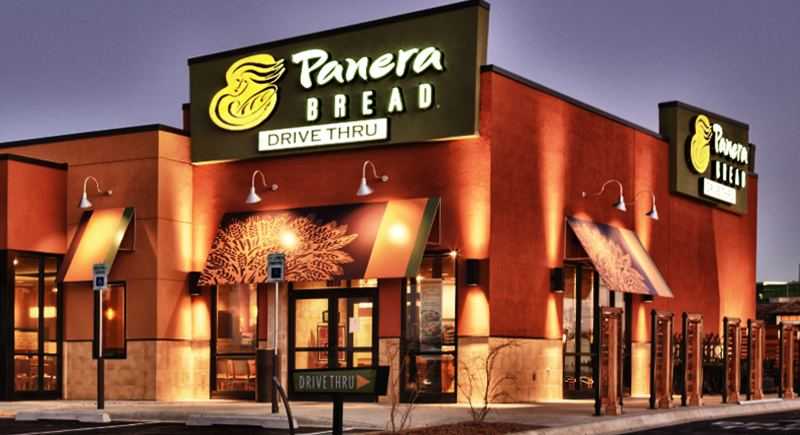SAINT LOUIS, Missouri, U.S. – JAB Holdings is buying fast casual restaurant chain Panera Breads for $7.5 billion including $340 million in debt. This is a 20.3% premium to Panera’s share price on Mar 31, after which the news became public.
JAB, owned by the billionaire Reimann family of Germany, has been growing its investments in the casual dining space, with a particular focus on U.S. coffee and restaurant chains.
Following its investment in Krispy Kreme Doughnuts and Keurig Green Mountain and the merger of its D.E. Master Blenders 1753 business with Modelez International’s coffee business to form a company called Jacobs Douwe Egberts (in Europe), JAB became the world’s largest coffee maker.
Its other purchases in the space include Caribou Coffee, Peet’s Coffee & Tea and bagel chain Einstein Brothers (it has been combining with Caribou with Einstein in some markets).
So JAB is a company that holds investments in other companies that largely operate independently.
What JAB Gets
Despite the high price tag, it’s worth noting that Panera operates in the very attractive fast casual segment of the restaurant industry, which has allowed it to grow revenue in each of the last 10 years.
In recent years, the company has increased leverage to invest in a digital platform that allows customers to minimize waiting time by placing their orders in advance from their mobile devices.
They can also place a mobile order from their table. Catering, delivery and selling branded products are other recent initiatives that it has invested in. While there was a temporary hit to its results, earnings before non-recurring items bounced back nicely in 2016 and the benefits of the investments will likely continue.
Panera has around 2,000 outlets throughout the U.S. where it sells coffee, salads and sandwiches, as well as new items for the health conscious. JAB inherits all this plus the technology platform that it can extend to other businesses under its umbrella.
JAB partner and CEO Olivier Goudet issued a statement, in which he said, “We strongly support Panera’s vision for the future, strategic initiatives, culture of innovation, and balanced company versus franchise store mix” and “We are excited to invest in and work together with the company’s management team and franchisees to continue to lead the industry.”
What Panera Gets
Expansion can be an expensive business and it can be funded with debt or equity. But Panera ended 2016 with close to a 60% debt-cap ratio, which means raising further debt would increase risk.
On the other hand, the company has steadily reduced its share count, with a corresponding positive impact on its EPS, so issuing shares to dilute earnings is probably not the way management does things.
Selling the company at a nice premium allows investors a nice profit on their holdings. Selling to a privately-held company increases flexibility in operations since it can keep a lot of operational details private.
That JAB has made such a good offer is validation of management’s investment and expansion strategy. Moreover, Panera CEO Ron Shaich has said, “Nothing will change. The management team and I will remain.” And he does command around 15% of the voting power.
He also said: “Our success for shareholders is the byproduct of our commitment to long-term decision making and operating in the interest of all stakeholders, including guests, associates, and franchisees.
“We believe this transaction with JAB offers the best way to continue to operate with this approach. We are pleased to join with JAB, a private investor with an equally long-term perspective, as well as a deep commitment to our strategic plan.”
Industry Background
The rise of fast casual restaurants may be attributed to Americans growing more health conscious and favoring food items that cut the sugar, salt, fats and so forth.
They are also willing to pay a little bit more for a little better quality than typical quick service places, but they don’t want to spend quite as much as full service; particularly because grocery prices remain low, making eating at home the cheapest and healthiest option.
Full-service, fast food and fast casual comprise around a 48%, 44% and 8% share of the overall market.
NPD expects full-service restaurants to see revenue decline 2% this year, offset by a 1% increase in quick service for a flattish year overall.
According to The National Restaurant Association, fast casual revenue has grown 13.5% in 2014 and 10.4% in 2015. The restaurant industry as a whole, in comparison, grew only 5.7% in 2015 up slightly from 5.3% in 2014.
Last Words
JAB is obviously targeting the coffee market to shake Starbucks SBUX and Nestlé’s dominance.
The company has reportedly spent $40 billion dollars on acquisitions to build its position, so there’s a good chance it will make a mark. As far as investors are concerned, the acquisition reduces investment options in what is an attractive area.















